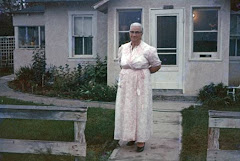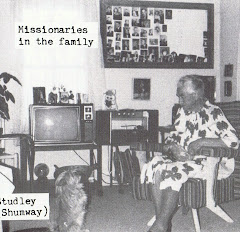 |
| They Started Flight |
CROSSING THE PLAINS DAYS OF '57
A NARRATIVE OF EARLY EMIGRANT TRAVEL
TO CALIFORNIA BY THE
OX-TEAM METHOD
BY
WM. AUDLEY MAXWELL
WM. AUDLEY MAXWELL
COPYRIGHT, 1915, BY
WM AUDLEY MAXWELL
SUNSET PUBLISHING HOUSE
SAN FRANCISCO MCMXV
Note: Additional information regarding Holloway Massacre
As recorded in "Book of Crossing the Plains, Days of '57' by William Audley Maxwell
Note: This is a true story of an Indian Massacre involving my daughter-in-law's ancesters.
Jeremiah Bush is her gg-grandfather.
CHAPTER IV.
DISQUIETING RUMORS OF REDMEN. CONSOLIDATION FOR SAFETY.
THE POISONOUS HUMBOLDT.
THE POISONOUS HUMBOLDT.
Soon after passing the summit of the Rocky Mountains there were rumors of a hostile attitude toward emigrants on the part of certain Indian tribes farther west. For a time such information seemed vague as to origin and reliability, but in time the rumors became persistent, and there developed a feeling of much concern, first for the safety of our stock, later for our own protection.
Measures of precaution were discussed. Men of our train visited those of others, ahead and behind us, and exchanged views regarding the probability of danger and the best means for protection and defense. We were forced to the conclusion that the situation was grave; and the interests of the several trains were mutual. As the members of the different parties, most of whom previously had been strangers to one another, met and talked of the peril which all believed to be imminent, they became as brothers; and mutual protection was the theme that came up oftenest and was listened to with the most absorbing interest.
By the time we had crossed the Green River these consultations had matured into a plan for consolidation of trains, for greater concentration of strength. A. J. Drennan's company of four or five wagons, immediately ahead of us, and the Dr. Kidd train, of three wagons, next behind us, closed up the space between, and all three traveled as one train. Thus combined, a considerable number of able-bodied men were brought together, making a rather formidable array for an ordinary band of Indians to attack. Every man primed his gun and thenceforth took care to see that his powder was dry.
Still the youthful element occasionally managed to extract some humor out of the very circumstances which the older and more serious members held to be grounds for forebodings of evil. One morning after we had left camp, a favorite cow was missing from the drove. "Jack" Aston and Major Crewdson, both young fellows, rode back in search of the stray. From a little hill-top they saw, in a ravine below, some half dozen Indians busily engaged in skinning the cow. "Jack" and the Major returned and merely reported what they had seen. They were asked why they had not demanded of those "rascally" Indians that they explain why they were skinning a cow that did not belong to them. "Jack" promptly answered that, as for himself, he had never been introduced to this particular party of Indians, and was not on speaking terms with them; furthermore, neither he nor the Major had sufficient knowledge of the Indian language properly to discuss the matter with them.
The route pursued led to the north of Great Salt Lake, thence northwesterly. Our line of travel did not therefore bring us within view of the Mormon settlements which had already been established at the southerly end of the great inland sea.
We camped one night approximately where the city of Ogden now stands, then a desolate expanse of sand-dunes. A group of our men sat around the camp-fire that evening, discussing the probability of a railroad ever being constructed over the route we were traveling. All of them were natives or recent residents of the Middle West, and it is probable that not one had ever seen a railroad. The unanimous opinion was that such a project as the building of a railroad through territory like that over which we had thus far traveled would be a task so stupendous as to baffle all human ingenuity and skill. Yet, some twelve years later, the ceremony of driving the famous "last spike," completing the railroad connection between the Atlantic and Pacific, was performed on a sand flat very near the spot where we camped that night. The intervening period saw the establishment of the "pony express," which greatly facilitated the mail service (incidentally reducing letter postage to Pacific Coast points from twenty-five to ten cents). That service continued from the early sixties until through railroad connection was made.
After the consolidation of trains as described, our next neighbor to the rear was Smith Holloway, whose "outfit" consisted of three wagons, with a complement of yokewise oxen and some horses and mules; also a large drove of stock cattle, intended for the market in California, where it was known they would be salable at high prices. He had with him his wife, a little daughter, and Jerry Bush, Mrs. Holloway's brother, a young man of twenty-one years; also two hired men, Joe Blevens and Bird Lawles. Holloway kept his party some distance behind us, he having declined to join the consolidation of trains in order to avoid the inconvenience that the mingling of his stock with ours would entail, with reference to pasture, and camping facilities.
A mile or two behind Holloway were the trains of Captain Rountree, the Giles company, Simpson Fennell, Mr. Russell, and others, equipped with several wagons each, and accompanied by some loose stock.
All these were traveling along, a sort of moving neighborhood; incidentally getting acquainted with one another, visiting on the road by day and in the camp at evening time; talking of the journey, of the country for which we were en route, and our hopes of prosperity and happiness in the new El Dorado—but most of all, just then, of the probable danger of attack by savage tribes.
More than ever rumors of impending trouble were flying from train to train. Some of these were to the effect that white bandits were in league with Indians in robbing and murdering emigrants. The well-known treachery of the savages, and the stories we heard of emigrants having been slaughtered also by whites—the real facts of which we knew little of—were quite enough to beget fear and suggest the need of plans for the best possible resistance.
Up to this time there was frequent communication between trains, a considerable distance ahead and behind. As at home, neighbor would visit neighbor, and discuss the topics of the day; so, from time to time we met persons in other trains who gave out information obtained before leaving home, or from mountaineers, trappers or explorers, occasionally met while we were yet on the eastern slope of the Rockies; men who were familiar with Indian dialects and at peace with the tribes, enabling them to learn much that was of importance to the emigrants.
Dissemination of news among the people of the various trains near us was accomplished not only during visits by members of one train to those of another, but sometimes by other methods. One of these, which was frequently employed in communicating generally or in signaling individuals known to be somewhere in the line behind us, was by a system of "bone-writing."
 |
| Bone-writing |
Thus we progressed, counting off the average of about eighteen miles a day from the long part of the journey that still lay before us, when we reached Thousand Springs, adjacent to the present boundary line between Utah and Nevada. This, we were told, was the source of the Humboldt River. We were told, too, that the four hundred miles down the course of that peculiar stream—which we could not hope to traverse in much less than one month—we would find to be the most desert-like portion of the entire trip, the most disagreeable and arduous, for man and beast. Such was to be expected by reason of the character of that region and the greater danger there of Indian depredations; also because the passage through that section was to be undertaken after our teams had become greatly worn, therefore more likely to fail under hard conditions. Furthermore, scarcity of feed for the stock was predicted, and, along much of the way, uncertainty as to water supply, other than that from the Humboldt River, which was, especially at that time of the year, so strongly impregnated with alkali as to be dangerous to life.
Nearly all the face of the country was covered with alkali dust, which, in a light, pulverulent state, rose and filled the air at the slightest breeze or other disturbance. It was impossible to avoid inhaling this powder to some extent, and it created intense thirst, tending toward exhaustion and great suffering. We knew that sometimes delirium was induced by this cause, and even death resulted from it in cases of very long exposure under the worst conditions.
Sometimes for miles the only vegetable growth we found along the river was a string of willow bushes, fringing its course, and scattered, stunted sagebrush, growing feebly in gravel and dry sand, the leaves of which were partly withered and of a pale, ashy tint. Feed for the animals was very scarce. It was not possible, over much of the way, to get sufficient fresh water for the stock, therefore difficult to restrain them from drinking the river water. Some did drink from that stream, despite all efforts to prevent it, the result being that many of them died while we made our way along the sluggish Humboldt.










No comments:
Post a Comment